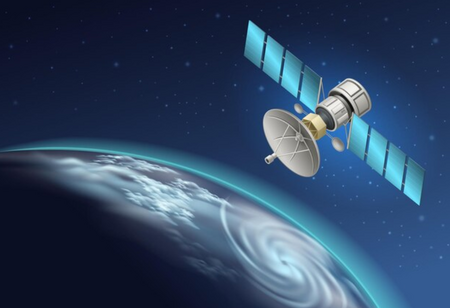ISRO Rings in 2024 with Groundbreaking X-Ray Polarimeter Satellite Launch
By Consultants Review Team
 India's space agency, ISRO, marked the dawn of 2024 with a remarkable achievement - the successful launch of its inaugural X-Ray Polarimeter Satellite, catapulting the nation into the league of only two countries exploring the mysteries of black holes in space. The mission unfolded as part of the Polar Satellite Launch Vehicle (PSLV) C58 rocket's 60th mission.
India's space agency, ISRO, marked the dawn of 2024 with a remarkable achievement - the successful launch of its inaugural X-Ray Polarimeter Satellite, catapulting the nation into the league of only two countries exploring the mysteries of black holes in space. The mission unfolded as part of the Polar Satellite Launch Vehicle (PSLV) C58 rocket's 60th mission.
The primary payload, named XPoSat, was deployed in a targeted 650 km low earth orbit during this historic mission. Subsequently, scientists executed an orbit-lowering maneuver, reducing the altitude to 350 km to conduct the PSLV Orbital Experimental Module-3 (POEM-3) experiment.
ISRO Chairman S Somanath expressed New Year wishes at the Mission Control Centre, announcing the mission's success. XPoSat, India's first dedicated scientific satellite for investigating the polarization of intense X-ray sources in space, aims to unravel the secrets of black holes and other cosmic phenomena.
The significance of this achievement is underscored by the fact that the United States' NASA conducted a similar study, the Imaging X-Ray Polarimetry Explorer mission, in December 2021. XPoSat will measure X-ray polarization in the 8-30 keV energy band from around 50 cosmic sources, contributing to long-term spectral and temporal studies of cosmic X-ray sources.
ISRO's mission is a major leap forward in space-based X-ray astronomy in India, complementing existing efforts focused on imaging and time domain studies. XPoSat, equipped with POLIX (Polarimeter Instrument in X-Rays) designed by Raman Research Institute and XSPECT (X-ray Spectroscopy and Timing) built by the U R Rao Satellite Centre in Bengaluru, is anticipated to have a mission life of approximately five years.
The deployment of cutting-edge technologies during the POEM-3 experiment adds another layer of excitement to the mission. Notably, a women-engineered satellite designed by the LBS Institute of Technology for Women in Kerala was among the payloads, showcasing strides in gender empowerment in the science and technology domain.
Mission Director Jayakumar M highlighted the success of the new technologies demonstrated during the POEM-3 experiment, including a fuel cell, silicon-based high-energy battery, and an amateur radio satellite service. He emphasized the importance of women's empowerment in science and technology, applauding the WESAT team for their significant contribution.




